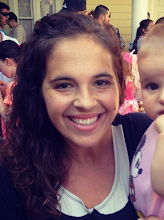I was listening to “To The Best Of Our Knowledge” today, and the topic was lists. Why do we have lists, 1001 Books to Read/Paintings to See/Places to Visit/Foods to Taste/Wines to Drink/Albums to Hear/Places to Visit Before You Die? What does the creation and publication of the 1001 Books to Read say about the rest of the books, and any books to come after it? What do they do for us?
Having lists creates a vocabulary. It creates a shared experience, or a point of reference that you can have in common with someone else. You’ve both seen the same films, read the same books? Great, you have something to talk about. That’s why you ask people what their favorite things are, so you can cross-list their information to your own and find a way to relate to them.
In daily life, having lists helps us gain control and take the reigns in a situation which might otherwise feel chaotic and without meaning. How great does it feel to cross something off that To-Do List? How accomplished do you feel when you’ve crossed everything off it (though that rarely happens)? How many times have you written something onto that list that you’ve already done just so you can cross it off? I know I have.
In graduate school, lists are simultaneously more and less tangible. They are more tangible because we enter school knowing the list of books we will have to read during our tenure in the program; they are the lists we will be examined on at the various steps in our process. We can see a list online, hold it in our hands, and see what is ahead of us. At the beginning of each semester, we see which books we have to purchase, read and understand throughout the course of the term. When we teach, it is the list of students for whom we are accountable, who we will instruct in the list of beginning grammar - articles, adverbs, present and past tense verbs, object pronouns, etc.
Lists are less tangible in grad school because they only give you half of the information. Your course outline does not tell you which books you should have read sometime in the past and committed to memory (because it seems like some people have, and they like to make it known). It does not tell you if the books will ever arrive from the Internet Book Shop. It does not tell you how many of the books you won’t ever get to, since you will likely always be behind in discussion and you’ll probably find at least one meeting cancelled throughout the course of the term.
Your class roster does not tell you anything about your students except their name and level of study. It does not tell you who will come to class on time, late or sporadically. It does not tell you who is inclined to your subject or who wants to be inclined to your subject but just isn’t. It does not tell you if you will have a successful dynamic during your fifty minutes, or if you will have to make them do the chicken dance to come out of their shells. Hopefully, it will click sooner rather than later.
The least tangible of all lists are the master lists: THE READING LISTS. Sure, you can hold it in your hand and say, “I have to read the following 100 books in the next year,” but it will not tell you that you won’t have time to read any of them during the semester. You can say, “I’m reading a modern list and taking at modern class--yes!,” but the list will not tell you that maybe two of the ten books you will read in that class will be on your list of one hundred. It will tell you which books you may be tested on, but will not tell you that some books appear almost every exam period while others have appeared once in the past fifteen years; what’s more is that it does not tell you that you will more likely be asked about those other, more rare books when you are not ready for it, such as in an oral exam when you’re already sweating bullets trying to remember what seem to be important details that no one cares about.
I decided to use this blog as a way to share what I’m reading, for my classes, for ‘fun’ (though they are fewer than the rest), and also for my reading lists. My last written exams are scheduled for August 17th (20th century) and 19th (Special Topic: Italo Calvino from the Modern to the Postmodern). Hopefully, that will all go well, and then I will get to share my experience as I transition from the reading phase of graduate school (the first 4 years) to the writing phase (the rest). Of course, I’m towards the end of the first phase, but it’s a big end, and it will be a big step.
4 years ago

No comments:
Post a Comment